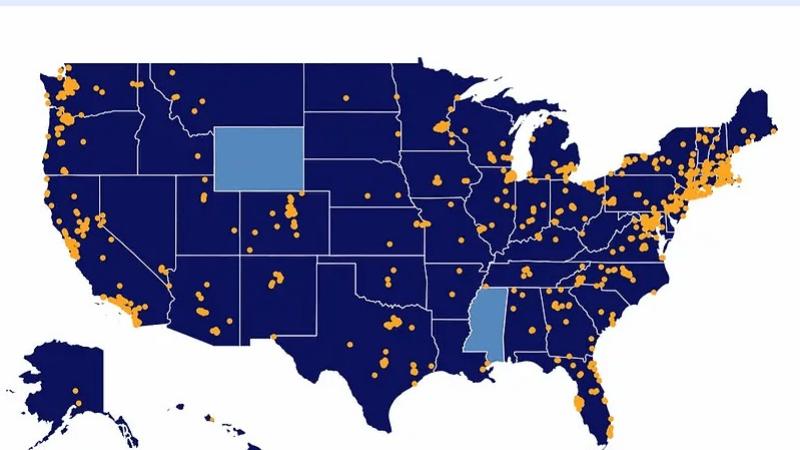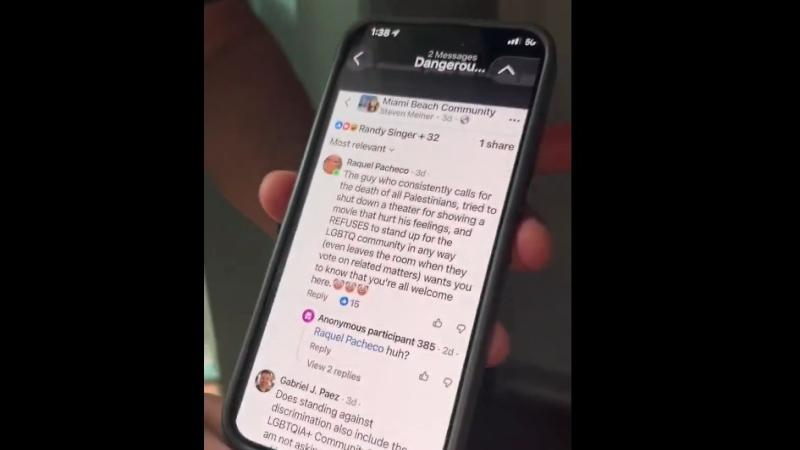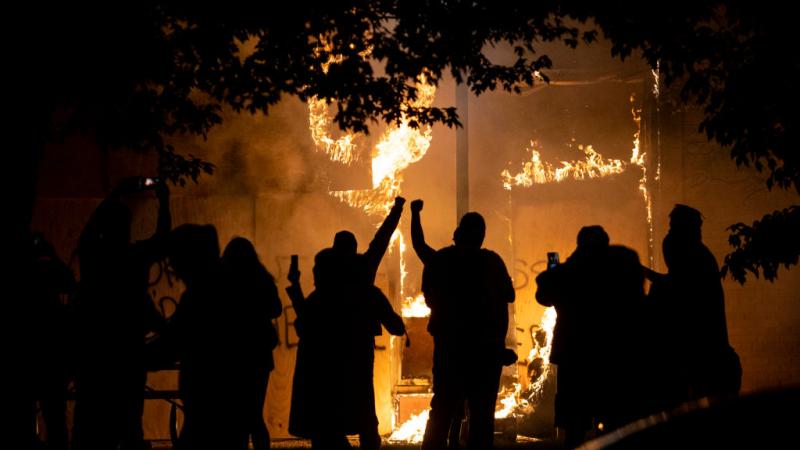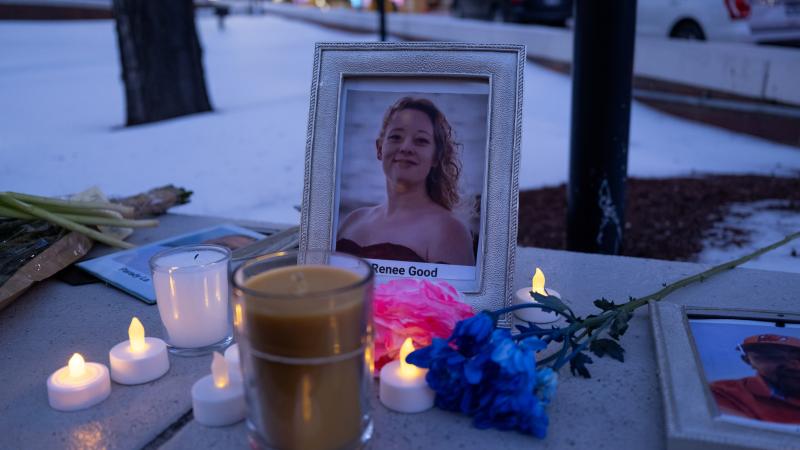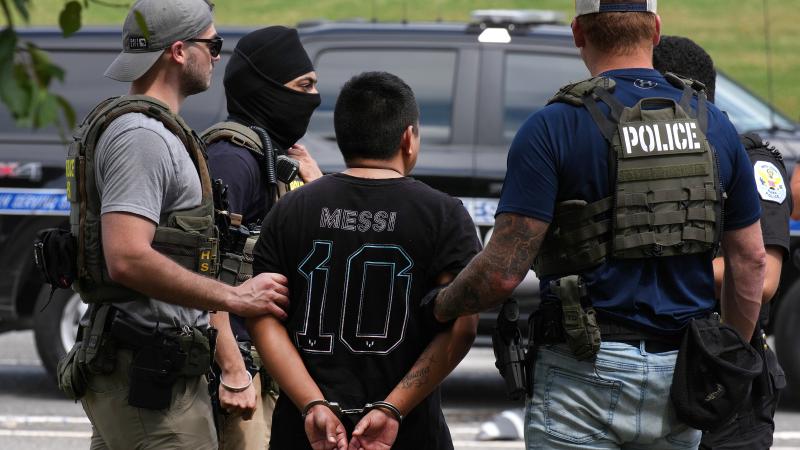Deion's Prime Time: Warnings on locker room prayer, silent street evangelism foreshadow lawsuits
University of Colorado faces tug-of-war between dueling legal groups over its famous coach's fondness for religious expression in team settings. South Carolina town defends permit process to hold Christian signs on public sidewalks.
Deion Sanders is a unicorn in professional sports, the only athlete to play in both a World Series and a Super Bowl. Now as coach of the Colorado Buffaloes, the two-sport talent nicknamed "Prime Time" is following in the footsteps of another Christian football coach as a possible First Amendment test case.
Sixteen hundred miles east, a South Carolina man silently proclaiming "Trust Christ He paid the price" in a small Columbia suburb could spark an even bigger constitutional struggle over time, place and manner restrictions on public expressions of faith.
Dueling legal groups have spent nearly two years trying to persuade the University of Colorado Boulder to either ban the born-again Sanders from promoting faith in official team settings or publicly bless his gestures, most recently when Sanders started bringing an Atlanta-area multisite megachurch pastor into the locker room to pray with and motivate players.
First Liberty Institute, which is pushing CU Boulder to ignore warning letters from the Freedom From Religion Foundation, is also representing street evangelist Ernest Giardino against Chapin, South Carolina, officials who insist he needs a permit to hold a sign on public sidewalks and allegedly gave him a time limit for each side of the street in the town of under 2,000.
Whatever play CU Boulder is planning to run with Sanders, it won't say. Athletics spokesperson Steve Hurlbert declined to comment "at this time" when Just the News asked for its response to the past month's letters from FFRF and First Liberty and whether the school will affirmatively back Sanders.
Chapin Town Administrator Nicholle Burroughs, by contrast, vigorously defended the town's actions in a series of email exchanges with Just the News that portray Giardino's actions as subject to its content-neutral demonstrations policy going back more than four decades, which balances free speech with "unnecessary loitering that may impact businesses."
First Liberty told Just the News it was not representing Sanders "at this point" but would not elaborate when asked whether that was a possibility. It's still waiting for Chapin's official response.
Christian expressions are an indelible feature of American sports and particularly football, from high school through the NFL, drawing sustained scrutiny from FFRF and others that seek to prevent the intermingling of taxpayer dollars with religious expression.
Former Bremerton High School football coach Joe Kennedy defeated the suburban Seattle district at the Supreme Court in 2022, a seven-year legal battle for reinstatement after it fired him for postgame on-field prayers found constitutional by the high court.
He quit after his first prayer back on the field a year ago, citing an unspecified retaliatory "series of actions" by the district "meant to diminish my role and single me out." Kennedy is the subject of a new biopic, "Average Joe," that had a short theatrical run earlier this month.
FFRF first warned CU Boulder Chancellor Phil DiStefano in January 2023 to stop the new Buffaloes coach from "infusing his program with Christianity," as Sanders had done with "call and response prayer" at historically black Jackson State University in Mississippi.
The Wisconsin-based group documented Buffaloes staff leading each other, players and coaches in prayer before team meetings, sometimes at Sanders' direction. FFRF said it had no evidence that Sanders hired a Christian chaplain but rather himself created "a Christian environment within his football programs that excludes non-Christian and non-religious players."
"The Supreme Court has continually struck down school-sponsored proselytizing in public schools," and Sanders' players are in no position to challenge him even if they disagree, FFRF said. CU Boulder responded by training Sanders in his Establishment Clause obligations.
First Liberty told CU Boulder its nemesis relied on a legal test rejected by the Supreme Court in Coach Kennedy's case the previous summer and cited no complaints from students or staff. Sanders' prayers with the team are "private speech entitled to constitutional protection," it said.
FFRF threw a flag again last month after House of Hope Pastor E. Dewey Smith led a team prayer, thanking "Jesus" for the Buffaloes' Sept. 22 victory. It pointed to a July pregame video in which Smith – identified as "spiritual adviser" to Sanders and team "chaplain" – gives a pep talk "intertwining lessons from biblical scripture with his remarks to the team."
Chaplaincies in government bodies are as old as America itself and repeatedly recognized as constitutional, First Liberty told the university Oct. 16. The very religious diversity of America makes it "daunting, if not impossible" to write an invocation that would be “inclusive beyond dispute," it said, quoting a concurring opinion by Justice Samuel Alito.
"Pastor Smith’s prayer met the legal parameters because he did not disparage other faiths and honored his own" and college students are far from the "impressionable" K-12 students protected from official proselytizing under SCOTUS precedent, the group said.
First Liberty warned Chapin, South Carolina Mayor Al Kook and Police Chief Thomas Griffin on Wednesday that its permit ordinance is an "unconstitutional prior restraint" due to its lack of "narrow, objective, and definite standards to guide the licensing authority" – not even defining the key terms "picketing" and "demonstrations."
"The unfettered discretion to stretch terms in this manner is what subjects Mr. Giardino to the strictures of the permit scheme in the first place," the letter reads.
Giardino had been holding evangelism signs for the prior eight months with no fuss until June 20 when a police officer told him he needed a permit, which Griffin verified the next day. The permit gives him 30 minutes a day to evangelize with a sign, and officials added that he "must change sidewalk corners every 15 minutes," First Liberty said.
The permit itself is content-based because it denies approval to anyone town officials "perceive to be part of a cult or that practices discrimination," its application to "individual and small group speech" mean it's not narrowly tailored, and its "advance notice requirement" – a full two weeks – "inordinately burdens spontaneous speech," the letter says.
It gives "no apparent reason" for either the pizza-delivery-like 30-minute limit or the 15-minutes-per-corner specification added by officials, First Liberty said, demanding "written assurance" the town will not use the permit ordinance to ban Giardino's expression.
Town administrator Burroughs told Just the News she wanted to correct "some of the misconceptions that are being pushed" about its policy, which dates to 1980 and applies "regardless of if the content is religious in nature or not" if a sign is involved.
"We received numerous complaints over the years from business owners stating activities such as these had a negative impact on their customers, therefore, the requirement to move to alternative locations was created to avoid any issues with unnecessary loitering," she wrote in an email. "It has worked successfully for years without issue."
She provided a lengthy statement copied to Griffin and a spokesperson, titled "Town of Chapin Protection of Free Speech," emphasizing it has granted "over seventeen public demonstration permits" since June, when it learned of Giardino's sign-based evangelism and immediately walked him through the process, and none has been denied or evaluated based on content.
"As a town, we are committed to upholding the fundamental right to free speech, recognizing that the ability to express ideas, opinions, and beliefs is essential to a healthy and vibrant community," but must "protect the shared interests of all residents and maintain the character and functionality of our public spaces" from disruption, the statement reads.
"Signage, when left unchecked, can lead to visual clutter, detracting from the aesthetic appeal of our town, obscuring important public information, and potentially causing safety concerns," and unregulated sound amplification "can create excessive noise, disrupt businesses, interfere with residential tranquility, and reduce the overall quality of life."
Burroughs said it was a "fair assumption" Chapin would have approved Giardino's application. "Individuals are still required to adhere to the ordinance and process regardless of the assumption of approval," however.
The statement repeatedly mentions "sound amplification devices" as also requiring a permit, reiterated by Burroughs in subsequent emails. First Liberty said Giardino doesn't use them.
She mentioned sound because it's one of the three factors that triggers a permit along with signs and loitering, Burroughs told Just the News.
"If an individual was walking along the sidewalk sharing their faith" with nothing else, "a permit would not be required," and while it's "possible that standing in front of a singular business disturbing operations" by itself could trigger a permit, "we have never had to require it," she said.
"We are happy for him or anyone else to share their faith, messaging and first amendment rights as long as they adhere to the Town code and our policy," Burroughs wrote in an email.
The Facts Inside Our Reporter's Notebook
Videos
Links
- born-again Sanders
- Joe Kennedy defeated the suburban Seattle district
- He quit after his first prayer back on the field
- new biopic, "Average Joe,
- short theatrical run
- FFRF first warned CU Boulder Chancellor Phil DiStefano
- CU Boulder responded by training Sanders
- First Liberty told CU Boulder
- FFRF threw a flag again last month
- First Liberty told the university Oct. 16
- First Liberty warned Chapin, South Carolina
